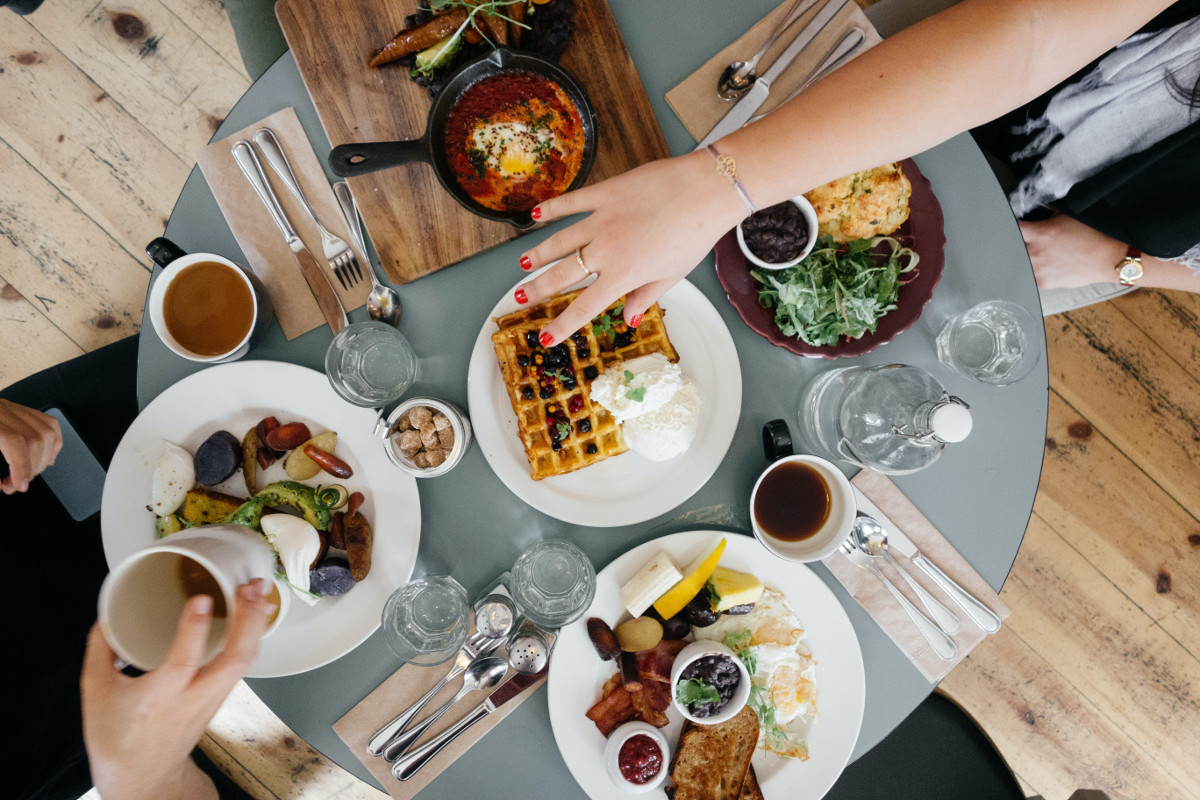For far too long, we’ve been under the impression that you are either a vegetarian or a meat-eater. But, in the words of that famous Australian advert about tacos, why can’t we have both? And that’s where the flexitarian diet comes in.
What is the flexitarian diet?
The flexitarian diet was first noted in the late 1990s and was properly introduced by American dietician Dawn Jackson Blatner in her book by the same name. Since then, its global interest has grown over the past two decades. It’s simple really, where you lead a vegetarian diet, but you are not wholly restricted to it. You can eat some meat-derived foods every once in a while. And this alone is a great selling point for those who want to eat more sustainably, but don’t want to give up their love for meat.
Indeed, let’s not forget that meat-eating has been the key to human evolution. We’ve been doing it since the dawn of man. But, equal to meat, we’ve also been eating vegetables and fruits, too. And for most us, it’s usually an equal task at dinner time. Meat and two veg, always the safe option…
But it’s time to shake it up a bit! We need to be sustainable for the future. So even if you’re hesitant on going full vegetarian, you could always ease yourself into it by introducing more vegetables to your eating habits.
And that’s the beauty of it! Here are three more reasons why the flexitarian diet may work for you:
- Fitness and strength. Photographed by Victor Freitas. Sourced via Shutterstock
Everyone’s heard of the misconception that you need to eat meat to be strong and beefy, but that’s just not the case. In a collaboration with The Alternative Meat Co., fitness trainers Luke Zocchi and Jono Castano are busting the myth that plant-based meals can make you weak.
“Fueling your body doesn’t always need to be about how much meat you eat,” says Luke. “Cutting out some of your meat each week and getting in your veggies is just as important.
“Thanks to the tasty plant-based products available at The Alternative Meat Co., cooking plant-based can be easy and still delicious.”
Using the new and improved Alternative Meat Co. patty, Luke has put his own spin on an Alternative Philly Burger. The burger is made up of a gourmet burger bun, vegan aioli, grilled onions, grilled peppers, oak lettuce, complemented with a double stack of two Alternative Meat Co. patties and finally basted with Luke’s special sauce – a blend of olive oil, soy sauce and a dash of maple syrup and finished with melted vegan cheese.
- Luke Zocchi and his Alternative Philly Burger alternative. Image: Supplied
- Jono Castano with his plant-based plate of barbecued Alternative Meat Co. sausages. Image: Supplied
Likewise, celebrity personal trainer Jono Castano says that, in 2020, the “protein excuse” just isn’t cutting it.
“Alternative Meat Co. products are packed full of healthy plant-based protein so you can still enjoy the meals you love without worrying about any nutritional deficiencies,” Jono says. “Their products have the same amount of protein and iron as their meat counterparts so can fuel you up for the day, plus their Aussie-made.”
Jono’s go-to plant-based plate is made up of barbecued Alternative Meat Co. sausages, paired with a side of seasoned grilled veggies and topped with lemon and seasoning – perfect for breakfast, lunch or dinner.
Both of these Alternative Meat Co products can be sourced at Coles in the meat section!
2. The benefits of a flexitarian diet on the planet…
- Vegetarian dish that looks like planet Earth. Photographed by Kimzy Nanney. Sourced via Unsplash
We all want to save the planet from the rise of climate change. I mean, it’s the only planet we’ve got! But you don’t have to stick to a strict vegan diet to make a difference.
In a 2014 article published by Renewable Energy, authors Talia Raphaely and Dora Marinova argue how flexitarianism can help reduce carbon emissions.
“Reduction in meat consumption to a healthy dietary intake, that is flexitarianism, offers an immediate, accessible and effective opportunity to mitigate climate change and its negative impacts,” the article reads.
Citing 15 sources, Talia and Dora said there is “overwhelming evidence” that eating less meat and increasing fruit and vegetables is the most “valuable, meaningful, fast and inexpensive action that individuals and societies can take to prevent the impending, irreversible tragedies of global warming.”
Clearly, it will be difficult to entice everyone to go vegan – let alone vegetarian – which makes a flexitarian diet more appealing. Every little bit helps, as the saying goes, so perhaps it could be high time to consider having a plant-based meal every once in a while.
You never know, you might enjoy it!
3. The benefits of a Flexitarian diet on your wallet…
Another silly misconception is how costly being a vegetarian or vegan can be, which means flexitarian could be just as harsh. But this is also a falsity! And look, we could cite great sources like this one by US News which states that being vegetarian is cheaper than meat-eating, but anyone who’s been to a supermarket can see the truth.
Chicken breast in Australia, for instance, can cost around $10 a kilogram. Meats, including steaks like porterhouse and scotch fillet, can easily reach up to $30 a kilo. But vegetables are reasonably inexpensive, usually in the single digits, and if you work with the seasons, you could easily find your grocery expenditure decreasing.
You can even find cheap deals in the frozen section of your supermarket, from frozen peas to mixed veggies. Sure, it’s not as fresh, but they last much longer, which can work out for you if you keep an eye out for deals.
And if you’re worried about bland cooking, invest in a spice rack! Going flexitarian doesn’t have to be boring…
Do you resort to ordering takeaway during the week? Perhaps you should consider Flave – Australia’s Newest Plant-Based Meal Delivery Service. And Perthlings, here are the 10 Best Places to Buy an Açai Bowl in Perth!







1. The benefits of a flexitarian diet on your health…